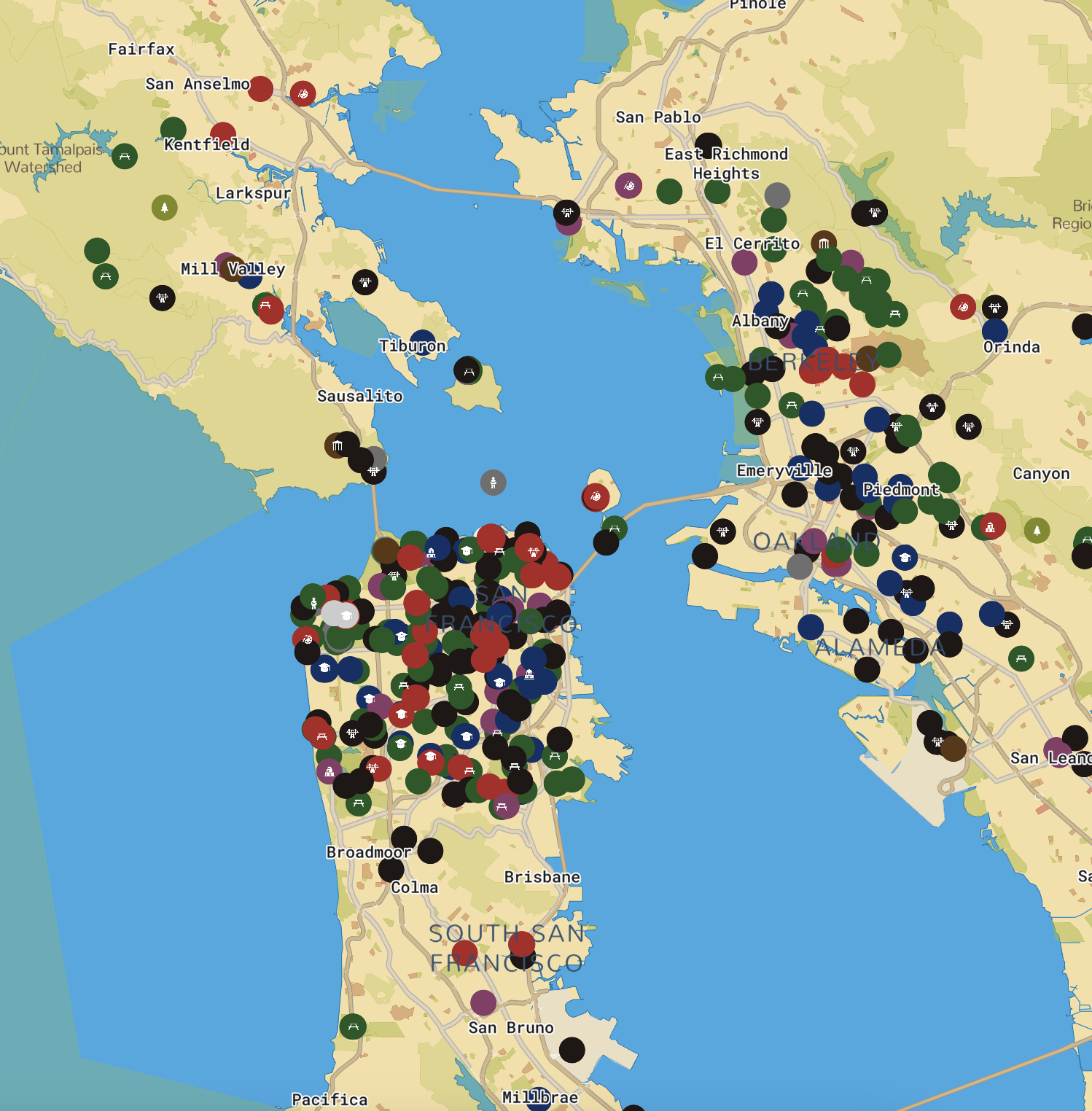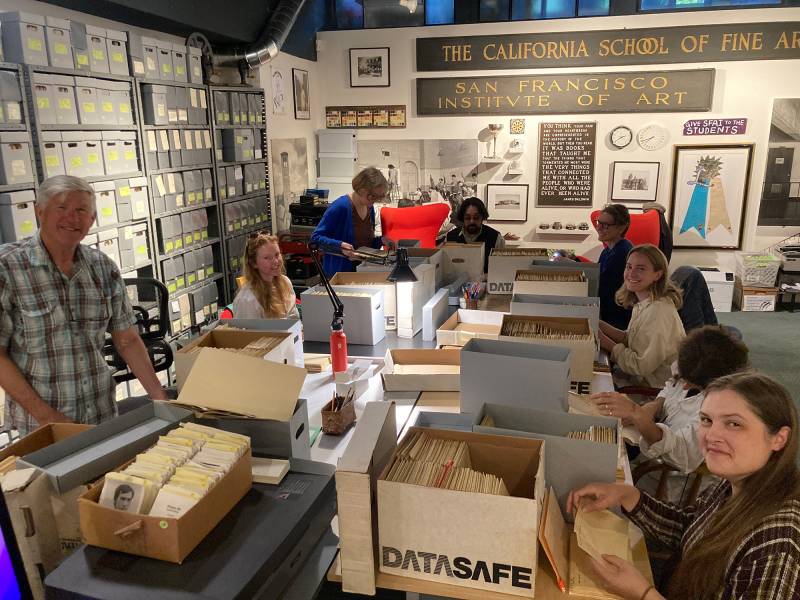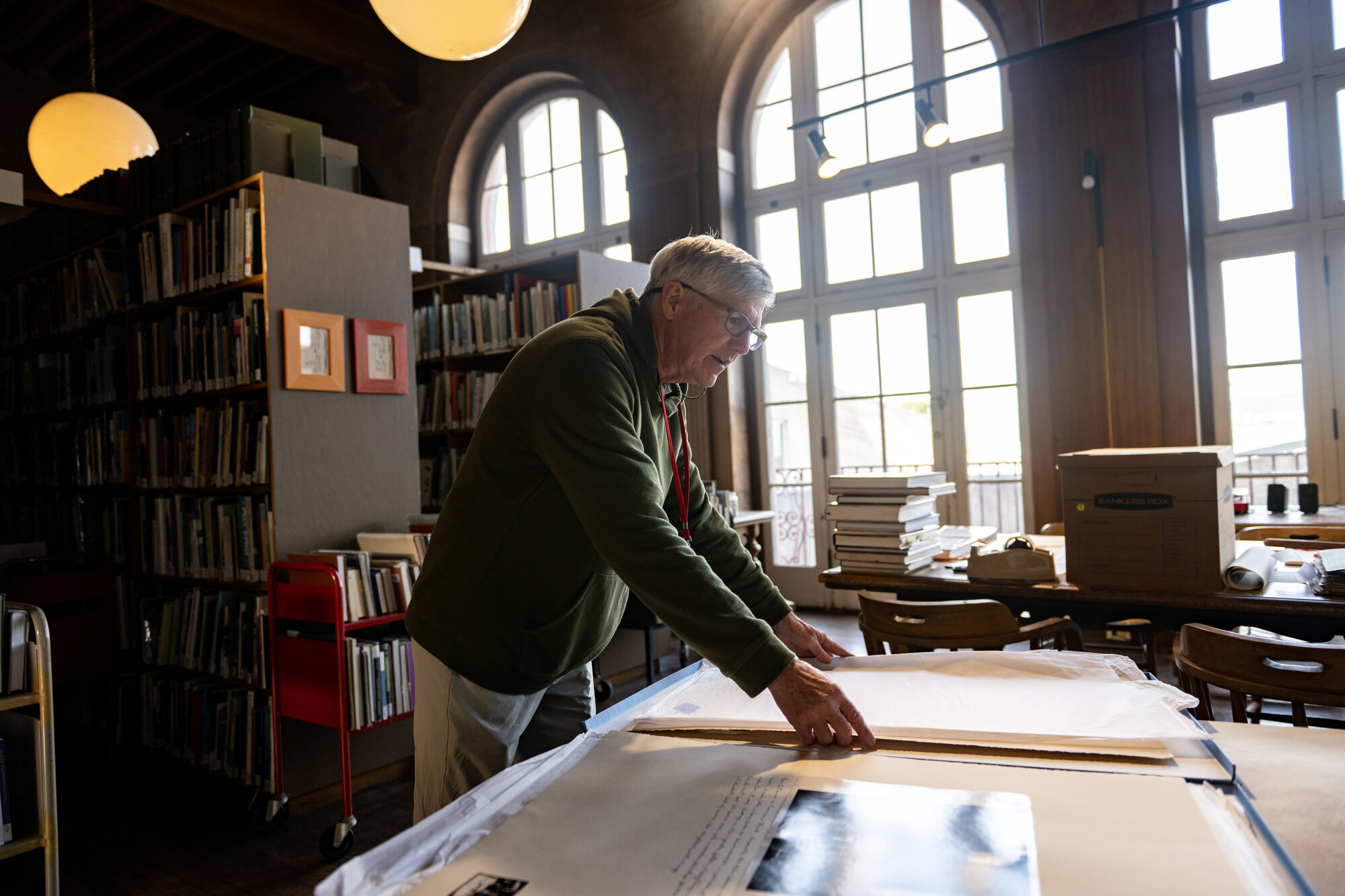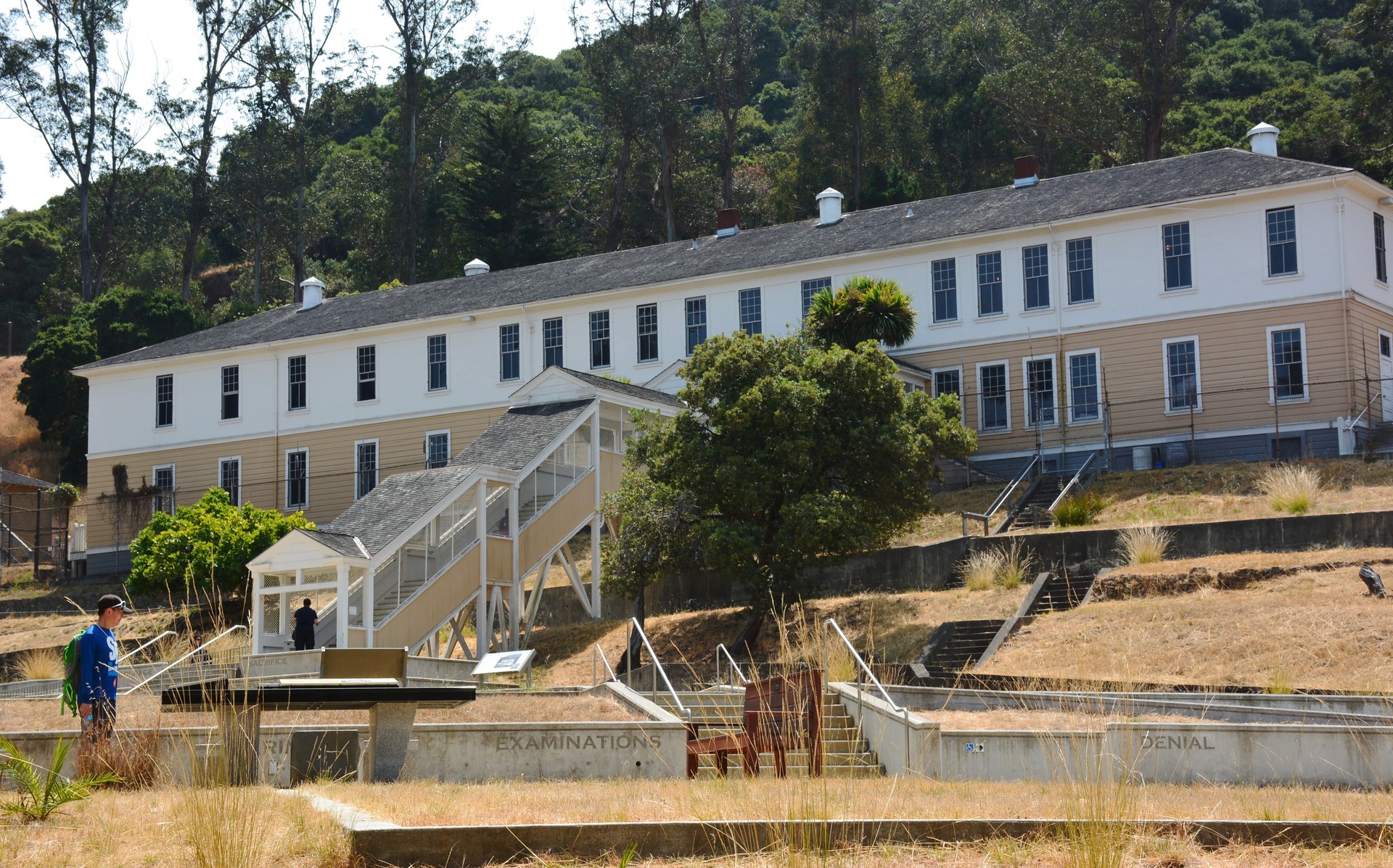Bay Area arts and cultural groups are reeling after the Trump administration’s revocation earlier this month of previously awarded federal grants from the National Endowment for the Humanities.
Living New Deal Assistant Director Mary Okin recalled getting the email with a cancellation notice for the Oakland-based non profit’s $150,000 grant and being thrown by the non-governmental address.
“It was from something like ‘NEH emails on microsoft.com’ or something,” said Okin, “and I went, what the hell is that?”
The Living New Deal is a crowdsourcing project that maps the buildings, art and infrastructure created by Americans under President Roosevelt’s New Deal policies during the Great Depression.

“I think it’s really important for people to know about the New Deal and all of what it did, because it’s such a model for what we can still do as a society,” said Okin.




